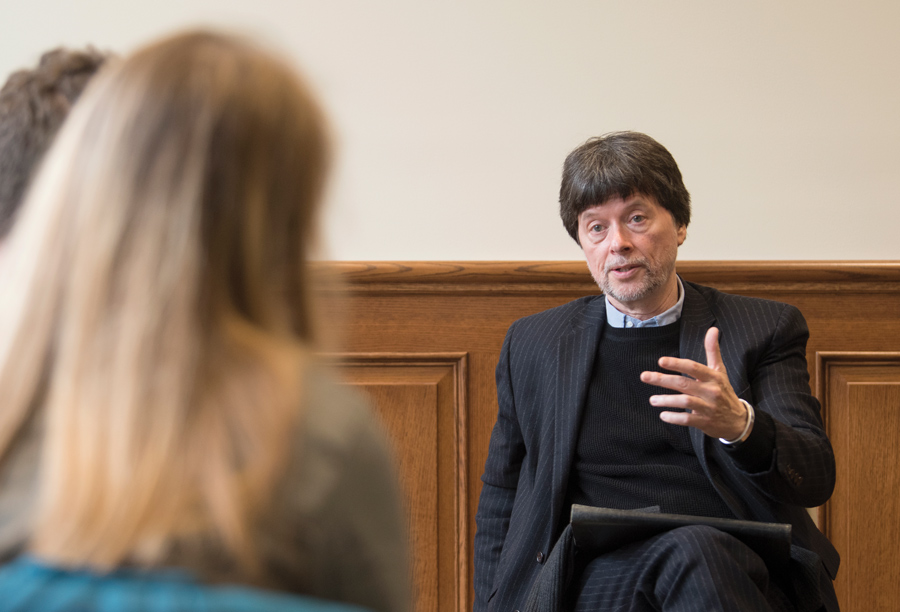
Before Ken Burns’ Bucknell Forum appearance April 9 — where he shared insights from his career chronicling the American experience, discussed the challenges of portraying a subject as multifaceted as war, and brought the crowd to its feet — the documentary filmmaker sat down with Bucknell Magazine to discuss his 10-part series, The Vietnam War, which aired on PBS stations last fall. Following are edited insights from that conversation.
On lessons from a gold-star mother
“We are all so dialectically preoccupied right now. Everything is red state or blue state, white or black, male or female, gay or straight. Whatever division we want to make, we’re certain to superimpose that over everything. And actually what a gold-star mother — and I hope the experiences of the soldiers, and of the people who were protesting — shows you, is that sometimes they cancel each other out. That it’s not really that dialectic. There’s something bigger.”
On his own memories of the war
“I wasn’t drafted, but I was draft eligible in the last year. They weren’t picking anywhere near my number, but I had to do this film to realize how not in danger I was — to understand the politics enough to realize that there was no way in hell I was going to end up in Southeast Asia.”
On how the war changed journalism
“One thing the military [said] is that we are never going to let the press have the kind of access they did during Vietnam. They now call it embedding, which sounds like, ‘Wow, you’re there,’ but it means that you’re surrounded by a scrum of people [who] don’t let you get to the stuff. Journalists are resourceful, and they break through that, but it reminds you, watching the Vietnam film, how central a free and unfettered press is to the conduct of our democracy, and how incredibly difficult our current moment is. Fortunately, this has been, for the last few years, a golden age of journalism.”
On whether his films have a political outlook
“We want to make sure we’re not putting our thumb on the scale of our own beliefs, but there’s a certain humanity that we add. Our Civil War film made clear that we didn’t think slavery was a good thing. [In] some academic communities it’s not that they think it’s a good thing, but they see it as neutral — it just was. I cannot be morally neutral about slavery.”
On his many works in progress
“I’ve finished a film on the Mayo Clinic. Right now I am working on a few biographies. One is significantly underway on Ernest Hemingway, one is begun on Muhammad Ali [and] another one is just in preproduction on Benjamin Franklin. I’m going back home tomorrow to New Hampshire to continue working on a film on the history of country music, which is eight parts and 16 hours [and] which we’ve been working on for seven or eight years. I’m beginning the preproduction on a film on the history of the American Revolution. I’m doing something on LBJ [and something on] the history of crime and punishment.”
On what Vietnam can teach us about today’s political situation
“I think Vietnam can be a very helpful barometer of where we are now — that is to say that holding up that mirror to who we are might help us see our own predicament in a less identified and partisan way and permit us perhaps to have the kind of civil discourse many of us wish we could have.”